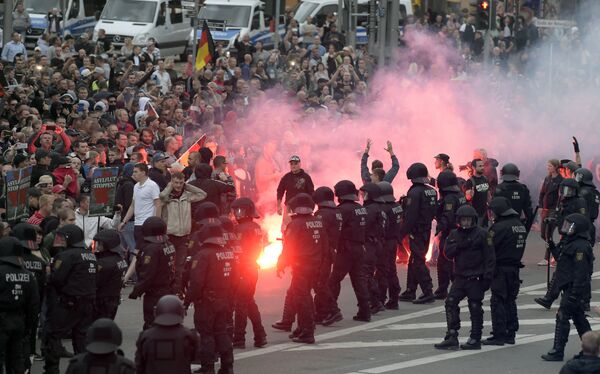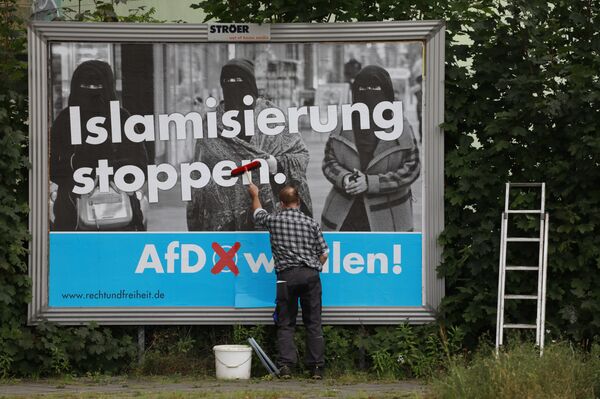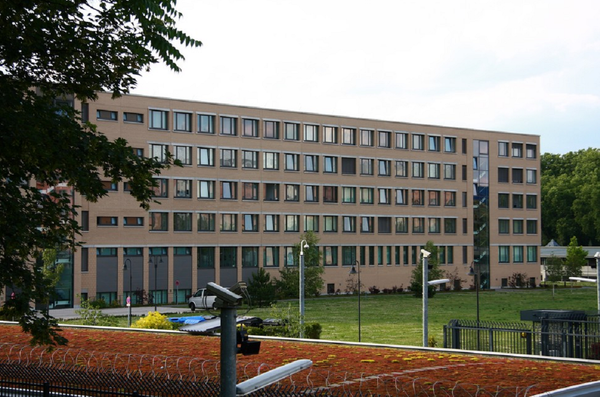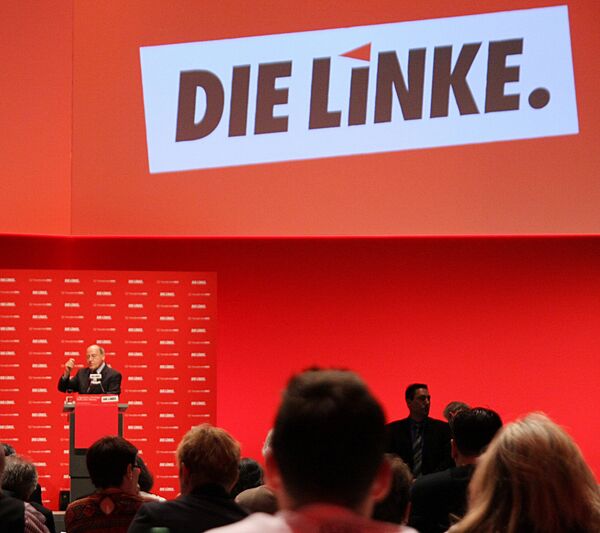Sizeable protests in the east German city of Chemnitz following the fatal stabbing of a German citizen by two refugees on August 26 produced sizeable protests through the area, with supporters of Alternative for Germany taking a leading role — perhaps unsurprisingly, given a quarter of voters in Saxony, Chemnitz' parent state, backed the party in the 2017 federal election.
They were joined by many disaffected citizens, but also allegedly groups and individuals with neo-Nazi leanings — and German lawmakers have claimed this apparent fraternization serves as justification for the BfV (Office for the Protection of the Constitution)spying on the party.

On September 3, as protests dwindled, the states of Lower Saxony and Bremen announced their regional BfV divisions had placed local chapters of Young Alternative, the AfD's youth wing, under surveillance as a result.
The move has merely added to existing pressure on the Bundesregierung to place the national party under surveillance. Speaking to journalists after a summit of business leaders and labor unions, Merkel declined to comment on the push, saying it was for the security services themselves to decide who to monitor. However, Finance Minister Olaf Scholz — a Social Democrat — was also in attendance, and countered that he agreed the Chemnitz clashes were clear cause for a review of whether to monitor the AfD.
Federal Interior Minister Horst Seehofer — of the Bavarian CSU — also threw his two cents into the debate, saying while conditions had not been met to monitor the AfD, a close eye would nonetheless be kept on key individuals and developments.

Lacking Teeth?
In European terms, the BfV is an organization almost without parallel. Created in Federal Republic of Germany in 1950 by the Allied occupation authorities, it was designed to monitor levels of Communist and Nazi sympathies in the then-fledgling state after World War II, and was a key facet of the country's constitutional structure.
However, the agency's powers are severely limited — in fact, its capabilities and operations are largely observatory in nature. While the BfV can subpoena private data (such as bank statements), hire informants and dispatch undercover officers, its agents are not authorized to make arrests, and much of its intelligence gathering is via open source information (such as social media posts).
By law, a group becomes a candidate for BfV observation by engaging in activities and/or making statements that could be construed as undermining the country's democratic order, or the country's security and peaceful coexistence of citizens.

It's unclear what if any impact the BfV's attentions had on the party whatsoever — no member was ever prosecuted or penalized in any way, suggesting no extremist links were found, or indeed if they existed were perfectly legal. Moreover, in 2014, after spied-upon lawmakers took the issue to a federal court, it was ruled the surveillance was excessive and unnecessary, leading then-Federal Minister of the interior Thomas de Maiziere to declare no Die Linke Bundestag members would be monitored any longer.
If established German parties are afraid of an AfD surge, they may well be wise to heed Lindner's words — after all, public support for the party has risen after the events in Chemnitz, with as many as 17 percent of voters saying they would back the party in a snap election.



